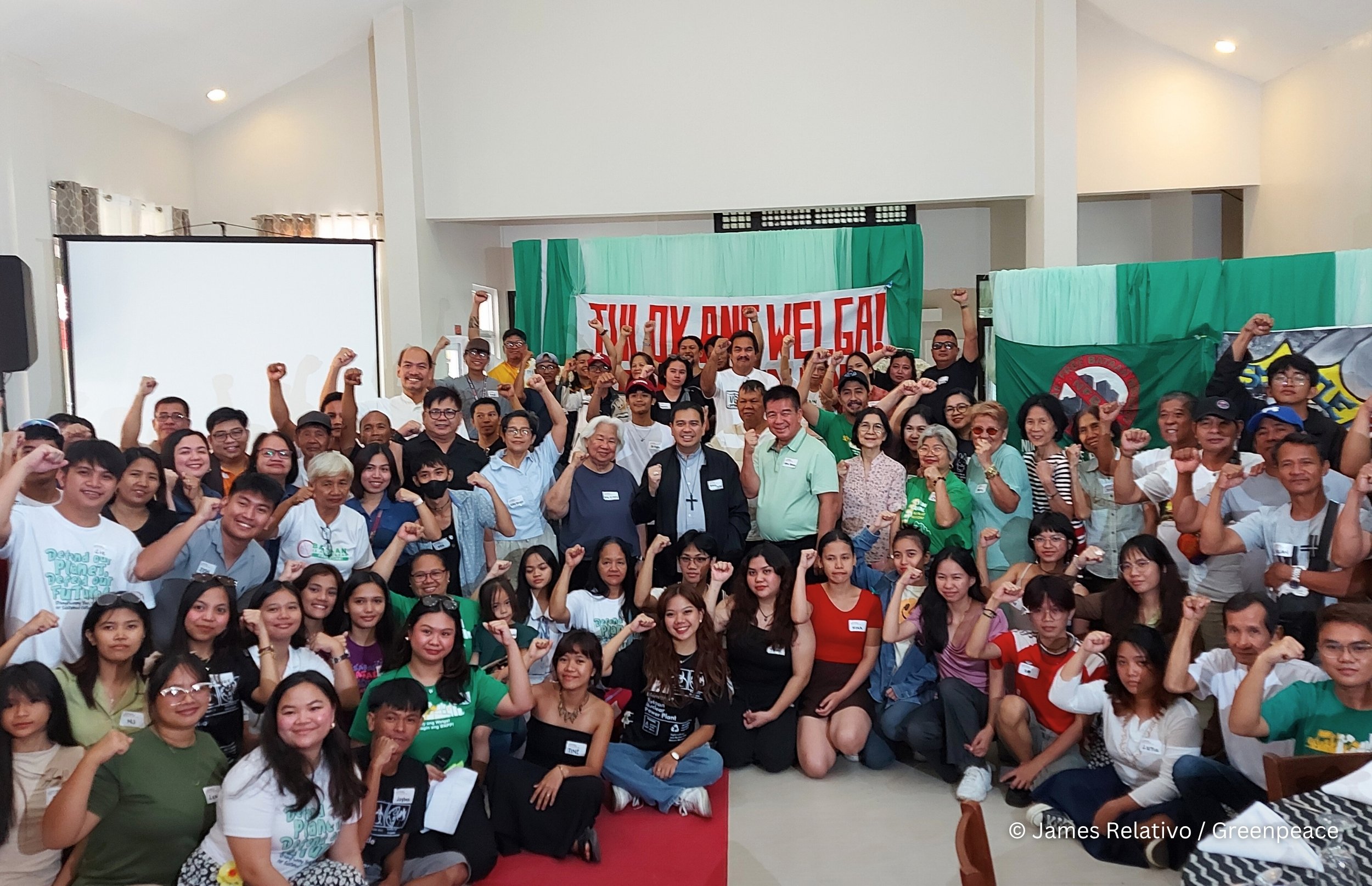Tubigon, Bohol — Residents of Bilangbilangan and Batasan Islands, with support of local government units and Greenpeace1 have installed solar panels and charging stations to strengthen their climate response capabilities and transition away from fossil fuel dependence.1
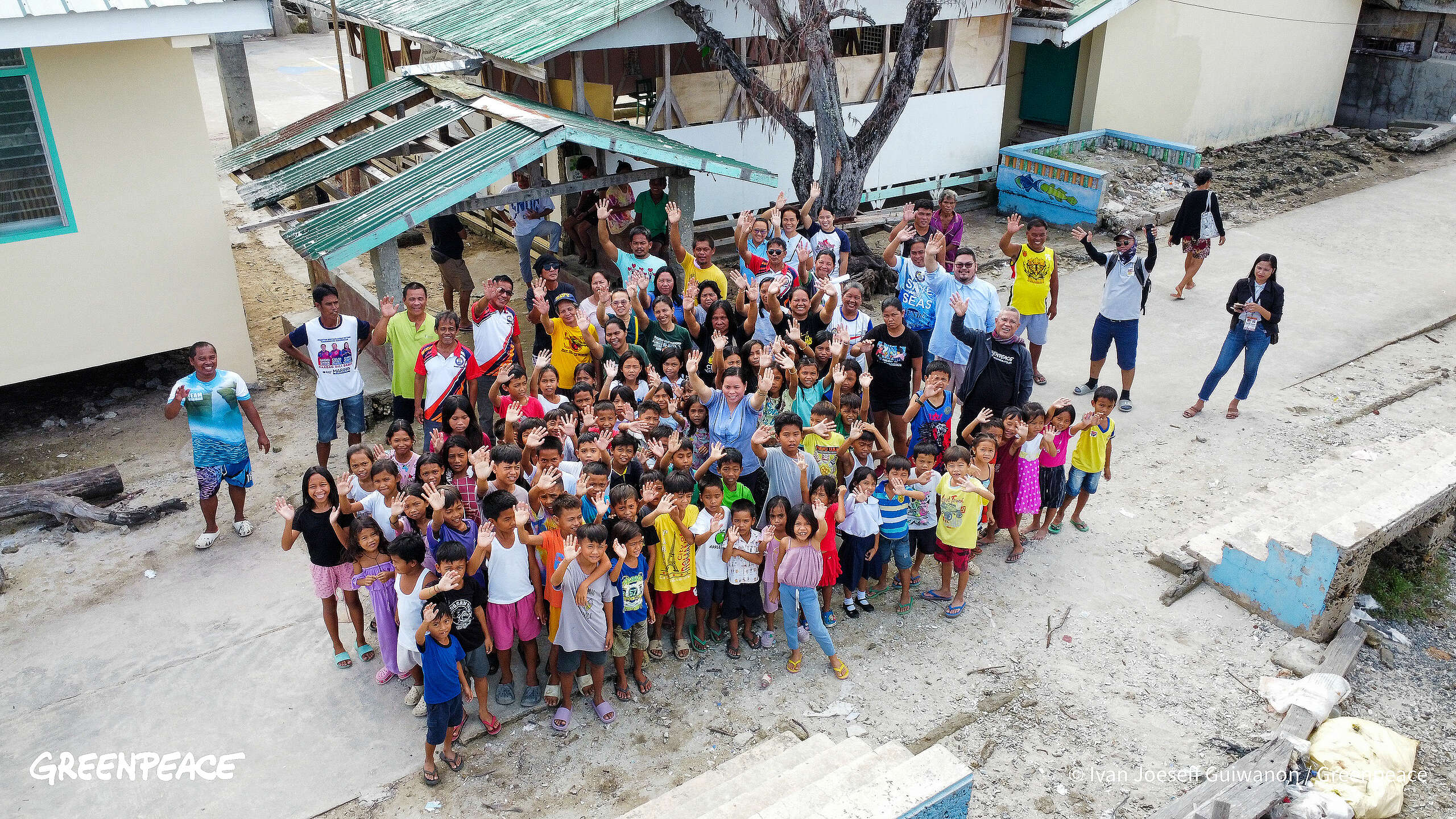
Bohol was among the areas worst hit by Super Typhoon Odette (International name “Rai”) in 2021, suffering 41.6 billion pesos in damages to infrastructure, the economy, and other critical sectors including development administration, social, environment, and private sector. For months, the province was without electricity, crippling water supply, communication, mobility, and economic activity.2
To this day, the islands have not fully recovered. Power supply remains intermittent, leaving the communities vulnerable to extreme heat during summer and at risk of isolation should a tropical cyclone cut off energy for days.
“During storms or disasters, solar power would be a great help,”3 said Anabelle Canete, resident and Barangay Captain of Batasan Island. “As we know, after a typhoon, we would have no electricity. But these solar charging stations can be used at any time.”
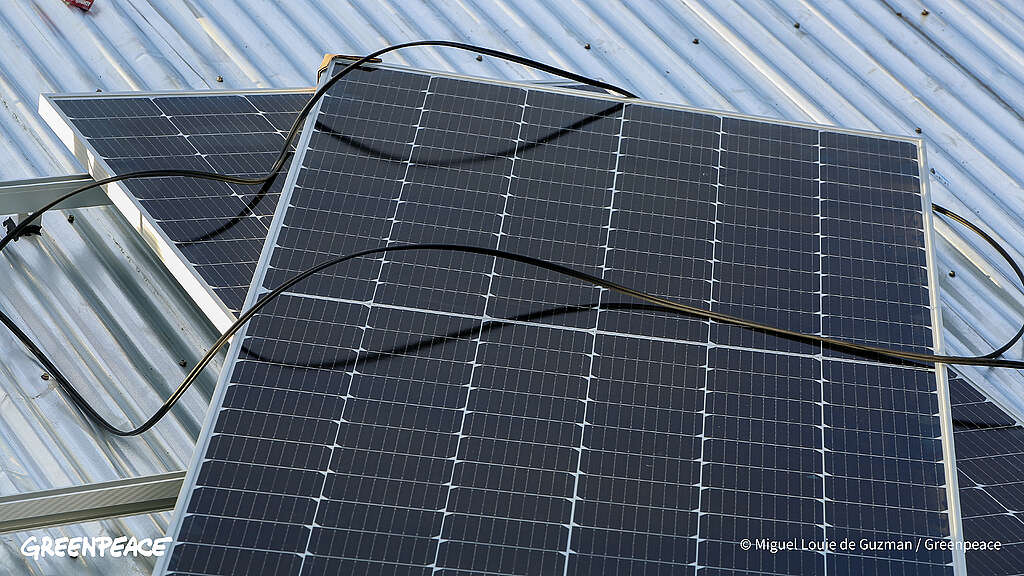
The charging stations, with a capacity of 2.8KW are designed to bolster disaster response, powering essential equipment such as communication devices, computers, lights, water pumps, water filtration, and refrigeration for food and medicine. For daily use, the panels will supplement the barangay halls’ existing energy capacity, and provide nearby schools energy for fans and media equipment.
“Solar actually helps make our daily expenses more manageable,3” said Dante Ciros, resident and Barangay Captain of Bilangbilangan. “We need energy for fishing, for powering our lights. Solar is better, cheaper than diesel, and does not pollute. It would be better if programs like this were also implemented in other communities, especially for islands.”
Like many residents in Bilangbilangan and Batasan, Ciros is very aware of the impacts of climate change, and how emissions by major fossil fuel companies are intensifying tropical cyclones. “We see people suffering all the time, especially in small communities. Big businesses don’t care about small communities here in the Philippines. They should cut down on emissions. What they do to the environment always comes back to us.”
The project represents a significant step toward the island’s transition away from using fossil fuels, such as with diesel powered generators.
“As one of the most vulnerable nations to the climate crisis, the Philippines must look at all areas of climate action,” said Greenpeace Campaigner Khevin Yu. “The country’s Climate Justice Agenda must not only seek fossil fuel accountability and payment for losses and damages, it must also work to support a global fossil fuel phase out, and back up our convictions through a just energy transition at the national level.”
Greenpeace emphasized the importance of legislative support, particularly through the Climate Accountability (CLIMA) Law5 and by beginning the process of litigating climate polluting companies.
“The IPCC’s 6th Assessment Report4 is clear: there is no room for new fossil fuel infrastructure,” said Yu. “We need a rapid phaseout of fossil fuels to avert the worst impacts of the climate crisis and secure the survival of communities. The CLIMA Law provides a pathway to this goal.”
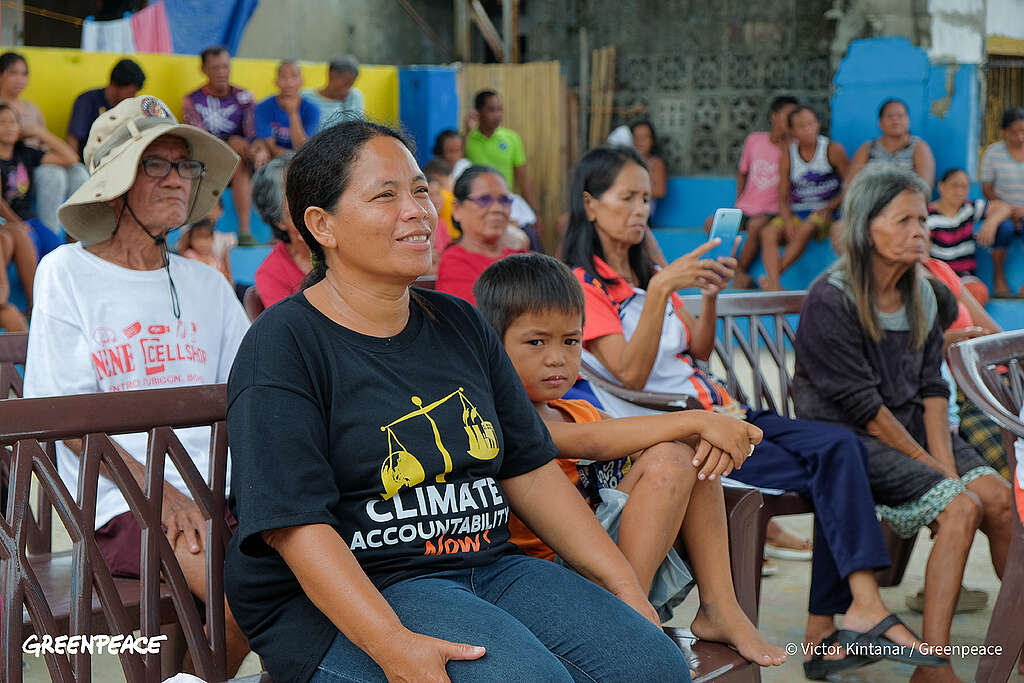
Yu concluded, “The communities of Bilangbilangan and Batasan have shown their commitment to renewable energy. They have lived through the worst of the climate crisis and have chosen to be part of the solution. The current administration must match this courage by enacting the CLIMA Law and fast-tracking the Philippines’ energy transition.”
Link to PHOTOS here
Notes to editors:
[1] Greenpeace contracted the Center for Renewable Energy and Sustainable Technology (CREST) to do the acquisition, engineering and installation of the solar charging station. They will also do a solar training workshop for volunteers and community partners.
[3] Translated to English.
[4] The Intergovernmental Panel on Climate Change (IPCC) of the United Nations is the foremost entity devoted to advancing scientific knowledge about anthropogenic climate change. Its latest report can be accessed here: ipcc.ch/assessment-report/ar6
[5] The CLIMA Bill (HB 9609), which seeks to establish a legal framework for climate loss and damage accountability, was filed in the Philippine Congress in 2023. The bill intends to: institute policies and systems to address climate change; protect communities from climate change-induced losses, damages, and human rights harms; and provide mechanisms for accountability and reparations from those responsible for worsening the climate crisis—including corporate interests such as the fossil fuel industry.

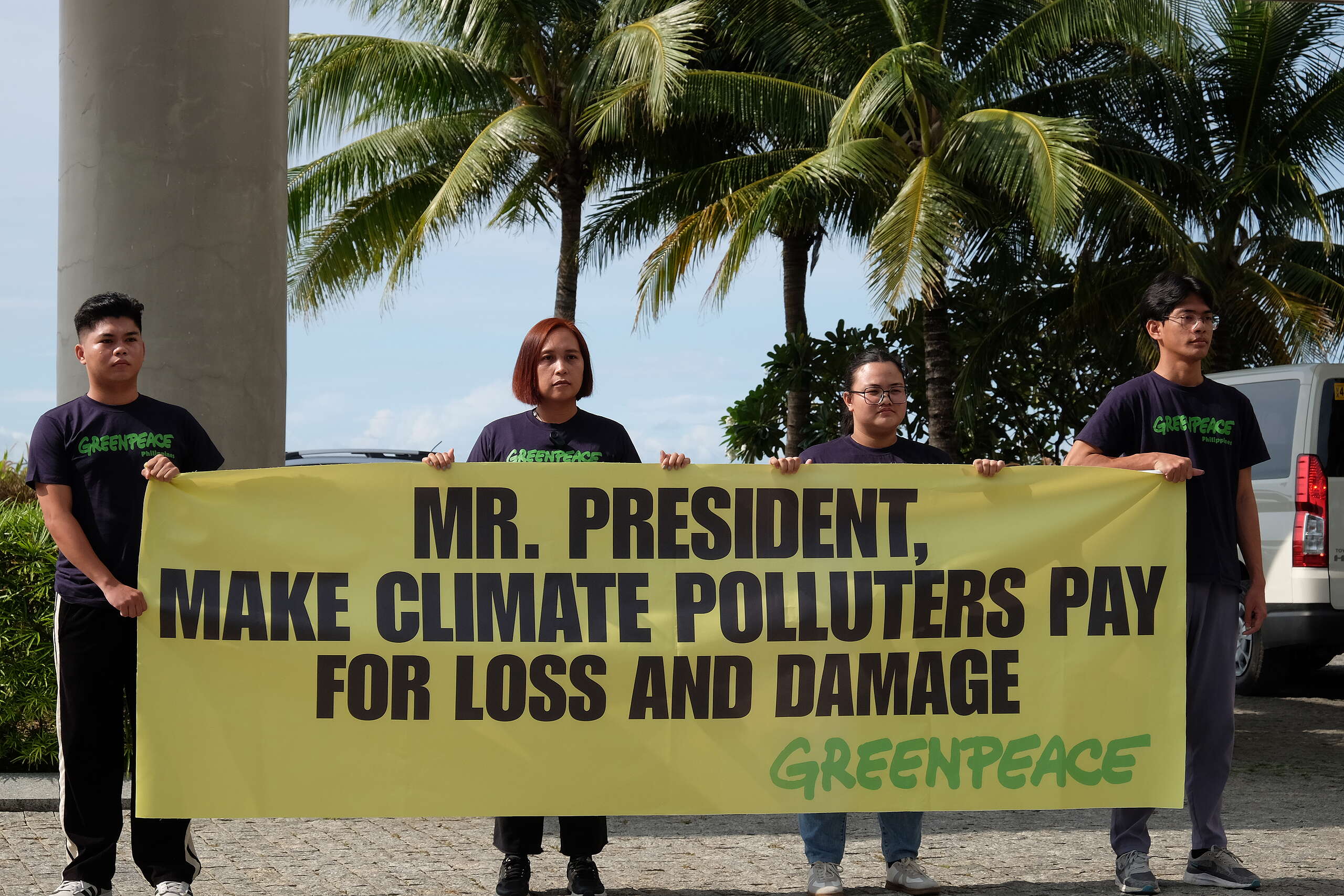
![[Blog] WHEN THE TIDE BECOMES THE TEACHER](https://www.greenpeace.org/static/planet4-philippines-stateless/2025/06/95c8411e-9a04f785-4293-46a6-a6cf-425f0a384682.jpg)
